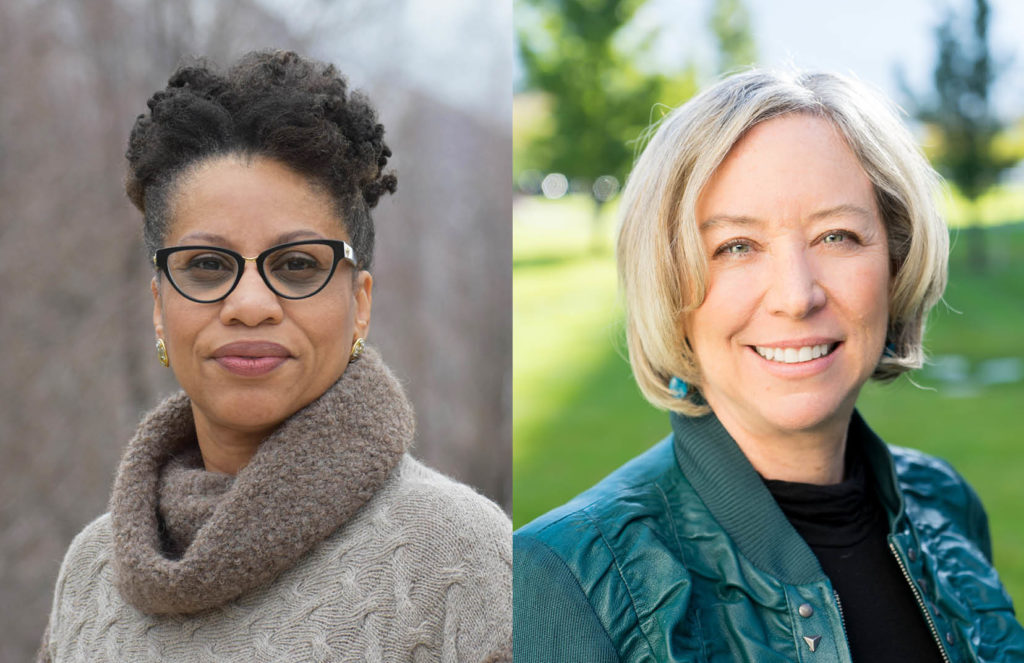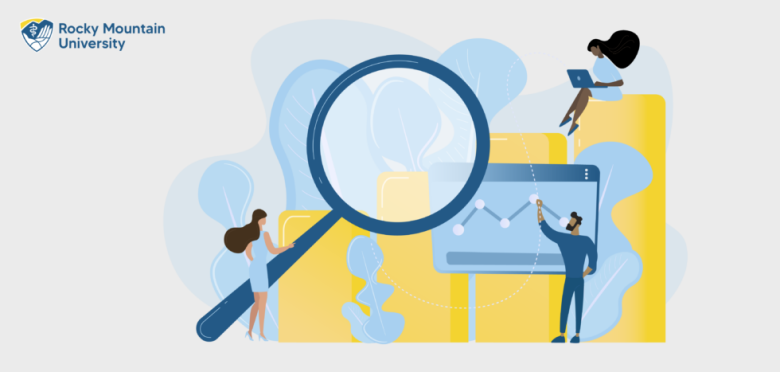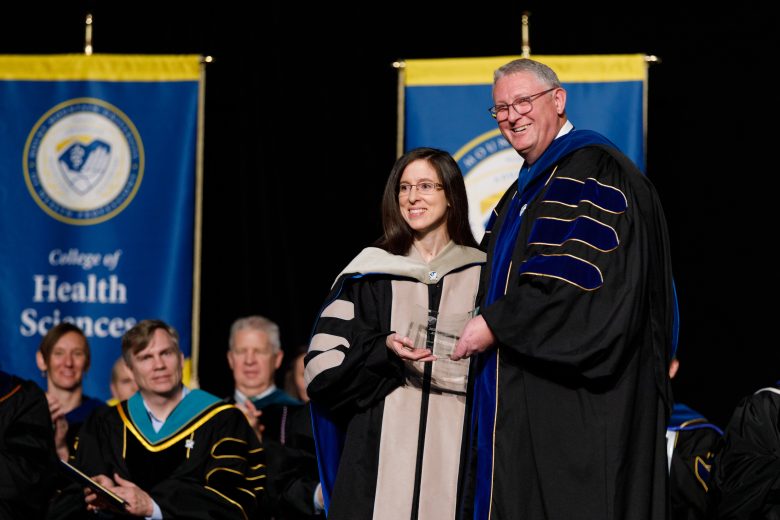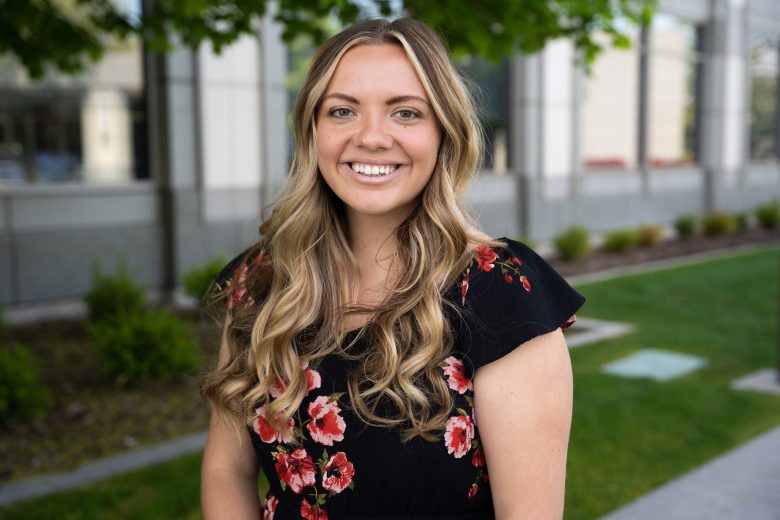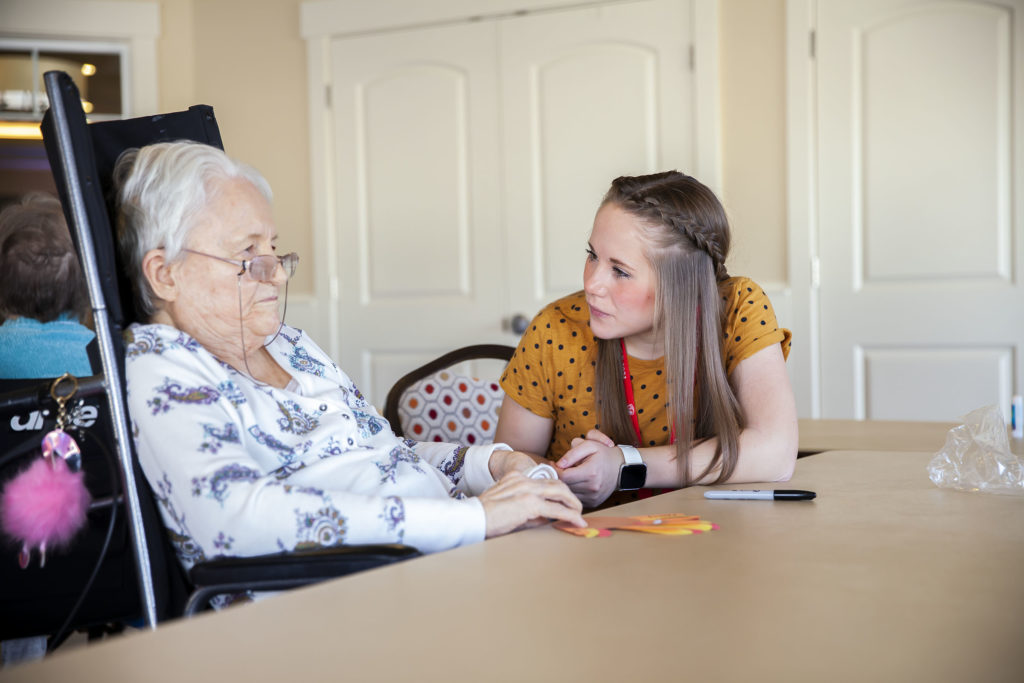
In honor of national caregiver month this November, Rocky Mountain University of Health Professions (RMUoHP) faculty members Michelle Webb, EdD, OTD, OTR/L, CAPS, and Linda Spencer, PhD, CCC-SLP, discuss the role and needs of primary caregivers of individuals with Alzhimer’s disease or related conditions.
“A family caregiver is somebody who has a loved one that lives with them or lives very close, probably in proximity, who has some type of disability whether it be dementia, Alzheimers, or a physical or mental disability,” said Webb, RMUoHP Vice President of Institutional Effectiveness and former RMUoHP Doctor of Occupational Therapy Program Director. “That family member is one of the primary people that is responsible for that individual’s safety, wellbeing, and physical health.”
Webb explained that being the primary caregiver can put a certain amount of strain on an individual and how it is important to build a support system while trying to maintain the routine in the life of the person they are caring for.
“Certainly routine is very important for someone who has Alzheimer’s disease or related dementia, but the issue is that the primary caregiver can’t be there all the time,” said Webb. “So you have to find a way to bring others into that household or into that situation.”
Spencer, who serves as the Program Director for the RMUoHP Master of Science in Medical Speech-Language Pathology program, agreed that primary caregivers need to take time to manage their own health.
“If you’re the caregiver and you’re getting worn out or your patience is growing thin, how is your loved one going to react?” asked Spencer. “They’re going to pick up on that, so you want to keep the valence of all the communication as positive as possible and so having new people in with a positive attitude helps.”
Many caregivers face the challenge of their family members not always being fully aware of their current situation. Webb explained that sometimes it’s better as a caregiver to let them live in the moment, however they may view it–a method called ‘therapeutic lying.”
“People have to understand, particularly caregivers, that you want to be in the moment with the person that’s in your care,” said Webb. “And if the person in your care is saying, ‘I’m looking for my mother, I want my mother,’ and the person is eighty years old and their mother has passed away, do you tell them that their mother has passed away or do you say, ‘your mom sent me to take care of you, so I’m here instead.” Then you move into the moment with that person.”
Spencer further explained that this method is “therapeutic and it’s keeping them in a balanced homeostasis.”
To learn more about resources for caregivers of individuals suffering from any type of dementia but particularly Alzheimer’s disease, Webb and Spencer recommend visiting the Alzheimer’s Associations website.
Listen to the entire RMUpload podcast episode in its entirety here.
